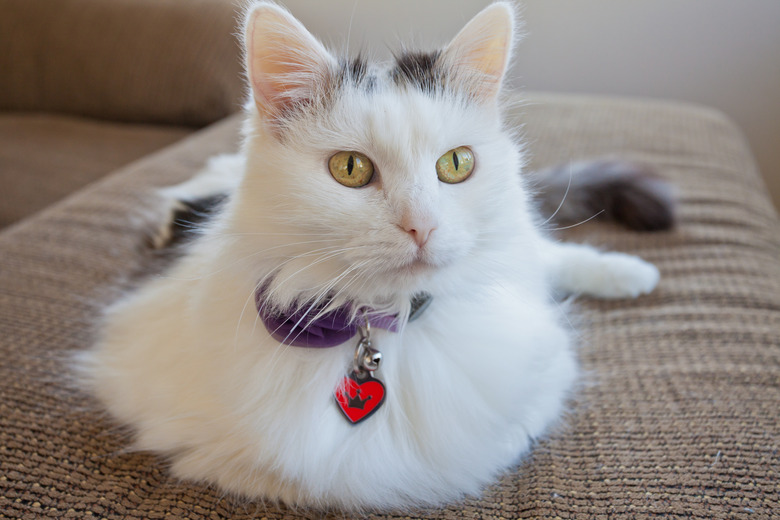Homemade Cat Shampoo
Anyone who has spent time around cats knows that they are usually meticulously clean. Cats literally spend hours a day grooming themselves, so it might seem like you wouldn't need to give a cat a bath. However, there might be times when you want your cat to be extra clean and fresh, and you might try a homemade cat shampoo.
Cat grooming habits
Cat grooming habits
According to Hills Pet Nutrition, cats spend between 30 and 50 percent of their waking hours grooming themselves—literally hours a day. Most cats who are in good health don't need extra help with grooming. However, they can occasionally roll in something that they can't clean off, or they have long hair that has become matted. You might want to give a cat a bath with a homemade cat shampoo if he has fleas or another skin condition.
DIY cat shampoo
DIY cat shampoo
Never use human shampoo on cats. They might seem similar, but they are unsuitable for cat hair and may dry out a cat's skin, says RSPCA Pet Insurance. Human and cat skin pH is different, so cat shampoos are formulated specifically to be friendly to cat skin.
A shampoo specifically formulated for cats is best, but safe soaps for cats include baby shampoo and castile soap. These are closer to a neutral pH and are therefore less likely to be harmful, although they are not ideal. Pet Hair Patrol provides this DIY cat shampoo recipe. Be cautious of overusing vinegar, however, as it can dry out your cat's fur and skin.
- 1 quart warm water
- 1/3 cup apple cider vinegar
- 1/3 cup vegetable glycerin
Cat shampoo alternatives
Cat shampoo alternatives
If you need some cat shampoo alternatives, consider Dawn dish soap. Dawn liquid soap is frequently used to clean the skin of marine mammals after they have been exposed to oil spills. The Marine Mammal Center, which receives donations of Dawn dish soap directly from Dawn, says Dawn is tough on grease and oil but is gentle enough for wildlife.
Other cat shampoo alternatives include wipes specifically designed for cats. Vet Info says you can make a dry shampoo that you can sprinkle on your cat's fur by using baking soda, oats, corn meal, or bran. Try mixing up a combination of these ingredients in a blender so they become fine and then sprinkle it over your cat's fur. It will deodorize and absorb excess oils.
If you use a DIY cat shampoo substitute, avoid including any essential oils even though they smell nice. Cats are especially sensitive to oils. Above all, never use a human shampoo or a dog shampoo on your cat. Cats, dogs, and humans have different skin needs, and these shampoos could cause your cat's skin and fur more harm than good.
Coconut oil cat shampoo
Coconut oil cat shampoo
According to Modern Cat, coconut oil is a safe moisturizer for cats, so if you find a coconut oil shampoo, you can feel good about using it. Coconut oil is believed to be anti-microbial, anti-fungal, and anti-inflammatory. You might also use a little coconut oil rubbed into the fur if your cat has matted fur or burrs that are stuck. Letting your cat lick a little coconut oil off your finger may also help him pass a hairball or may prevent a hairball from getting stuck in his throat in the first place.
When a cat doesn't groom
When a cat doesn't groom
Cats who are taken away from their mother too young may never have learned how to lick themselves clean, but otherwise, young and healthy cats typically have no trouble grooming themselves.
When a cat gets older, body issues might get in the way of her keeping her coat clean and shiny. Arthritis may make it hard for her to reach areas she used to be able to groom. She may have gained weight, which makes it hard for her to reach her whole body.
If you notice your cat's fur looking greasy or matted, she may not be able to groom herself as well as she used to. Using a dry shampoo can help as well as brushing her to encourage her to lick and to keep knotted fur at bay.
